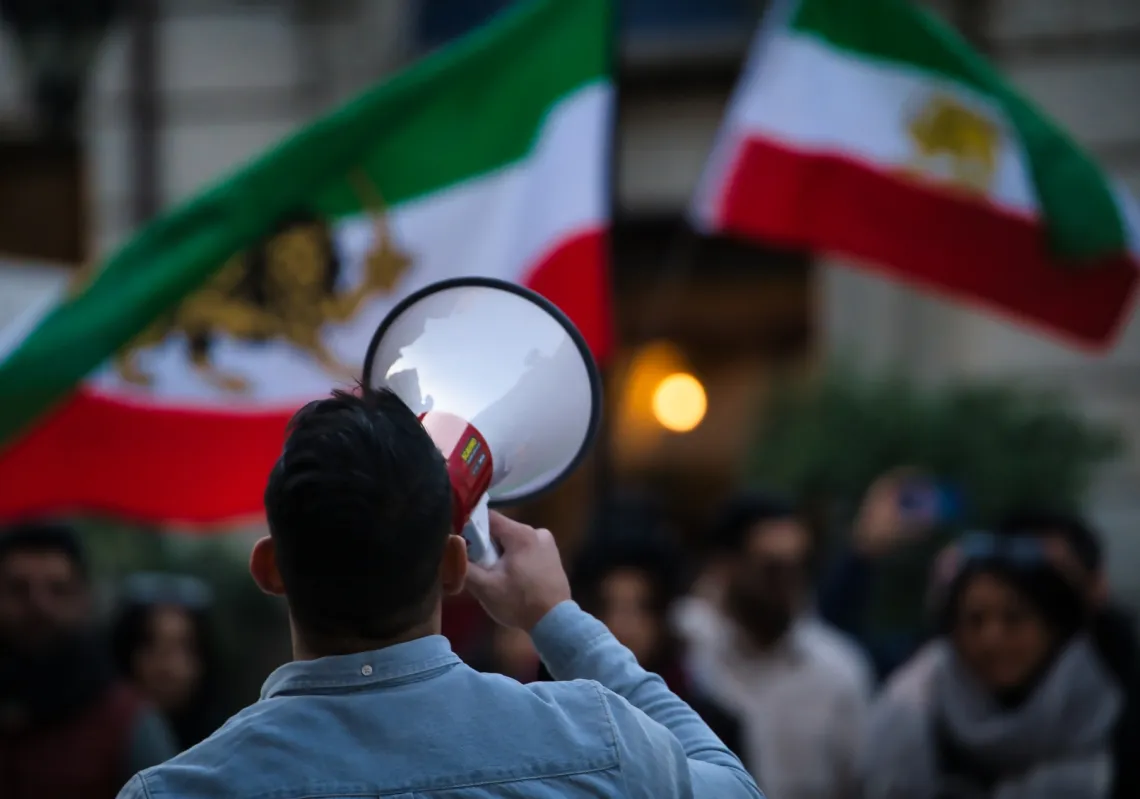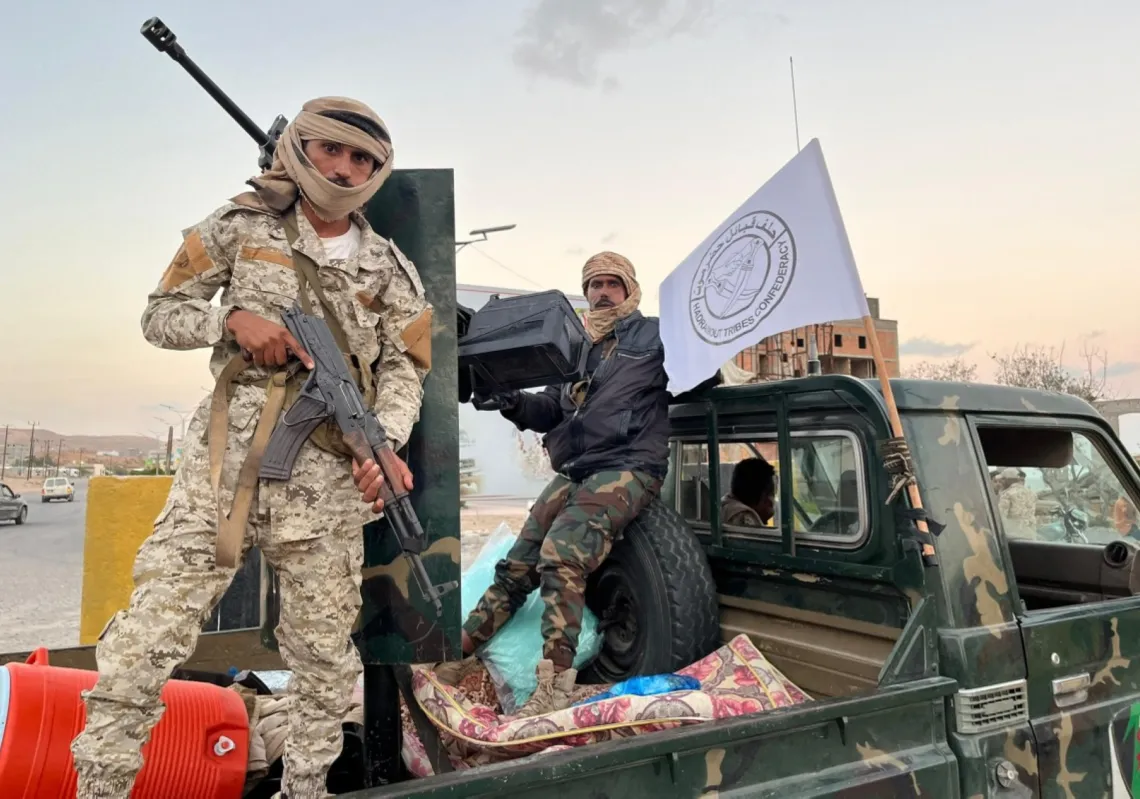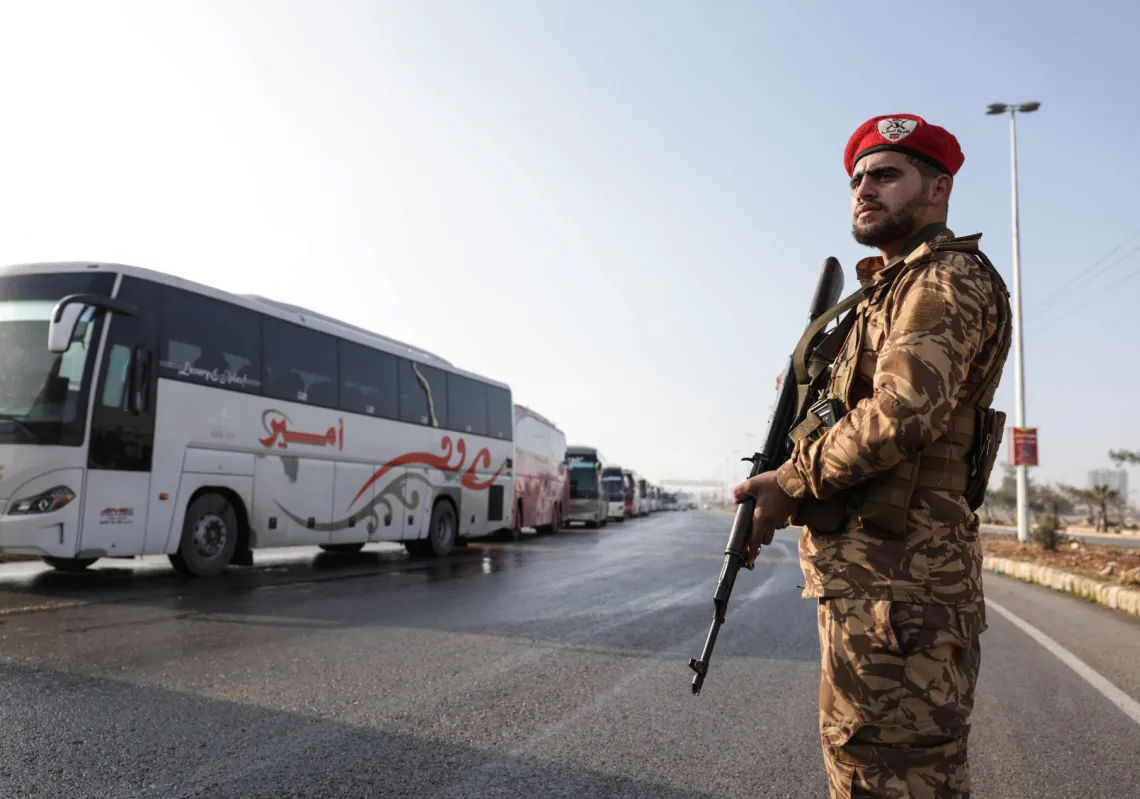
Baku, Azerbaijan: Ahmed Taher
Human rights and its protection is a dialectical issue that raises many discussions and debates because of its cultural implications, social and economic repercussions and its political and legal specificity, making it an area that is difficult for media experts and researchers to explore.
There are different perspectives and multiple frameworks for dealing with the issue of human rights protection which is connected to national security as it is directly linked to the considerations of state sovereignty and independence. Therefore, the principle of international intervention for humanitarian purposes and how to achieve the balance between how to protect human rights on one hand and respect the sovereignty and independence of states on the other hand has been widely debated.
This debate has not been definitively resolved, and experiences based on the principle of intervention for humanitarian considerations have in many cases failed for not having the legal justification for parties to intervene.
However, the debate over the role of the state in protecting and maintaining human rights has been resolved as there is consensus that the state and its organs and institutions are primarily responsible for ensuring that their citizens receive their rights and freedoms. This means that every country shall also respect the rights of all citizens, protect their lives and maintain their security and stability – a duty that is very difficult to fulfil.
This introduction is necessary when tackling the subject of human rights protection in any country and when addressing this issue we must take into consideration two important factors. The first is that protecting and safeguarding the human rights system is not carried out in an absolute way. It is not applicable in all situations and all countries. In other words, the system must take into account the national, social and cultural specificity of each country. This is a critical criterion for a state or society to accept the framework governing human rights. In this regard, Saudi Arabia's honorable position is confirmed by its refusal to compromise on anything that conflicts with Islamic law, which is always a priority.
The second factor is that the protection of human rights does not mean protecting the rights of terrorists and saboteurs. Some international organizations are trying to limit the issue of human rights protection to that of trials and guarantees for defendants in terrorist cases that affect the national security of the state.
Of course, it is necessary to provide the necessary guarantees in this regard, but there must also be a greater focus on the human rights of victims, the society as a whole and the State whose security and stability are threatened by these terrorists.
This brings us to the human rights system in the Kingdom of Saudi Arabia, which has started preparing for the “national strategy for human rights and its executive plan”, as stated by Dr. Nasser al-Shahrani, Vice President of the Saudi National Human Rights Commission, during a speech he delivered at a meeting in Geneva to discuss the report on the International Convention on the Elimination of All Forms of Racial Discrimination in late April 2018.
In this light, human rights in the Kingdom can be addressed through reviewing the basic principles, historical foundations and the proposed national human rights strategy within the framework of the Kingdom’s Vision 2030 and through two axes:
1: Reading Historical Records
It is no coincidence that since its establishment the Kingdom has placed great importance on its citizens’ rights and has worked on protecting them. Although this issue wasn’t tackled in the same way that it is today, it was always handled according to the circumstances and requirements of each era.
Saudi Arabia has been protecting these rights in accordance with Islamic Shari'a, taking into consideration principles and values that protect legitimate rights and freedoms.
[caption id="attachment_55257402" align="aligncenter" width="1476"]
 Saudi Defense Minister and Deputy Crown Prince Mohammed bin Salman gives a press conference in Riyadh, on April 25, 2016. (Getty)[/caption]
Saudi Defense Minister and Deputy Crown Prince Mohammed bin Salman gives a press conference in Riyadh, on April 25, 2016. (Getty)[/caption]
Royal decree No. 3703 of June 21, 1952 was issued by the founding King Abdulaziz bin Abdulrahman Al Saud in this regard.
“Any complaint brought to us (i.e to the King) through telegraph and mail, from any person, must be sent to us without any distortion or delay, and the defendant must not be informed about it, whether he is a prince, a minister or any other senior official,” the decree stated.
“And whoever is revealed to have delayed or stopped the receipt of a complaint for any reason shall be liable to be punished by strict penalties. We shall periodically send inspection bodies to all state centers in order to investigate the aforementioned. Every prince in the Kingdom shall declare this statement to the people in all forms of publishing and tell them that our door is open to all those who feel oppressed. If any person is forbidden from sending his complaint to us, the oppressed will surely win over the oppressor who will be punished,” late King Abdulaziz added.
In continuation of the same approach, the process of protecting and promoting human rights was launched in several stages, reaching the basic system of governance which stated explicitly that human rights shall be protected in many of its provisions. This includes Article (8) which states that governance in Saudi Arabia is based on “justice, Shura, equality and in accordance with Islamic law,” as well as article (26), which stipulates that “The State protects human rights in accordance with Islamic law.”
Saudi Basic Law has been keen to provide detailed provisions related to the promotion and protection of certain rights when it comes to the family and society, as stipulated in Article 10 of this Law.
"The State is keen to strengthen family bonds, preserve its Arab and Islamic values, take care of its members and provide appropriate conditions for the development of their talents and abilities,” Article 10 states.
Article (11) states that Saudi society will be based on the principle of adherence to God's command, mutual cooperation in good deeds and piety and mutual support and inseparability.
On this basis, the Kingdom's government believes in the vital role of society in supporting the process of protecting and promoting human rights.
The issue was not only internal as the Kingdom’s vision has reached abroad by boosting its efforts in cooperation with all States to protect and promote human rights.
“The State strives to achieve the aspirations of the Arab and Islamic nation through solidarity and unity and to strengthen its relations with friendly states,” Article (25) stated.
While Article (29) said that the State shall protect the Islamic and Arab heritage and contribute to Arab, Islamic and human civilization.
Thus, the framework and basis of the State's policy in protecting the rights of its citizens and safeguarding their freedoms is clear. Notably, the Kingdom was always the first to participate in many international and regional conventions, treaties and charters concerned with the protection of human rights. The conventions were the following:
1- International Convention on the Elimination of All Forms of Racial Discrimination
2- The Convention on the Elimination of all Forms of Discrimination Against Women
3- The Convention on the Rights of the Child
4- The Convention Against Torture
5- Arab Charter on Human Rights
6- The Convention on the Rights of Persons with Disabilities
In line with this vision, the Kingdom has established many national institutions that are specialized in human rights. It first launched departments and human rights committees in the Ministries of Interior, Foreign Affairs, Justice and Islamic Affairs. This step was later developed as the government established a committee on Islamic affairs, judiciary and human rights in the Shura Council and then approved the establishment of the National Society for Human Rights (as a popular civil society) and the Human Rights Commission (as an official governmental body).
[caption id="attachment_55257403" align="aligncenter" width="1476"]
 Saudi and foreign investors attend the Euromoney Saudi Arabia conference in the capital Riyadh on May 3, 2016. (Getty)[/caption]
Saudi and foreign investors attend the Euromoney Saudi Arabia conference in the capital Riyadh on May 3, 2016. (Getty)[/caption]
It also expanded its policy by seeking to establish some bodies and institutions that focused on dialogue as one of the basic pillars for the promotion and protection of human rights. The Kingdom established the King Abdulaziz Center for National Dialogue at the internal level, and then decided to expand internationally by launching an initiative for interreligious and intercultural dialogue through the establishment of the King Abdullah bin Abdulaziz International Center for Interreligious and Intercultural Dialogue in Vienna.
These steps have proven the Kingdom's approach to promoting the values of coexistence, understanding and cooperation among peoples, building peace and combating extremism.
2: The National Strategy for Human Rights in the context of Vision 2030
The Kingdom’s Vision 2030 includs plans and programs aimed at contributing to the promotion and protection of human rights as its leadership and government have always sought to implement the best global practices in building a better future. They have also always worked on complementing the country’s achievements in the legal and institutional areas related to human rights including justice, criminal justice, promoting integrity, rights of women, children, persons with disabilities, the elderly and migrant workers, combating corruption and racial discrimination, and boosting regional and international cooperation in this area.
The vision includes carrying out comprehensive reforms, continuous development and effective change in many systems. Among these systems are: the system of combating crimes of human trafficking and protection against abuse, the system of associations and civil institutions, regulation of domestic workers, amendment of judicial systems, Grievance Board, penal procedures and legal proceedings and the labor system as to be consistent with standards of international human rights.
It also sought to amend the organizational structure of the Human Rights Commission in order to enhance its independence, relating it directly to the King and establishing institutions and organizations related to this area, including the establishment of the Saudi Bar Association, the Family Affairs Council and the Authority for the Care of People with Disabilities.
Notably, the Kingdom’s Vision was not only limited to the promotion of human rights in the political and legal realms but it also gave a high priority to economic and social rights. It included many procedures and measures to respect, protect and fulfil these rights and integrated them into the National Transformation Program, which contained strategic objectives linked to interim objectives up to year 2020.
The Program provides many human rights’ initiatives, including children’s rights. Among these initiatives are developing nursery and child care programs and expanding their services to all regions of the Kingdom, improving the quality of health services in both preventive and therapeutic aspects, optimizing the integration and continuity of care provided through the development of primary health care, enhancing the quality of life in Saudi cities and empowering and investing in women, promoting comprehensive sustainable food security and creating an integrated family protection system.

In this regard, it is noted that a specialized center to receive reports on family violence has been established on a toll-free number that is available around the clock to intervene quickly in cases of abuse.
The Vision also emphasized the importance of providing work opportunities for citizens and raising the skill level of Saudis to meet the needs of the labor market.
In this regard, the Vision emphasizes the importance of developing voluntary work as the Kingdom aspires to develop this field by raising the number of volunteers from 11,000 to one million by the end of 2030.
It is noteworthy that the Vision has not overlooked Kingdom's role in the region as it has given priority to human rights in the Kingdom's foreign policy. It emphasized Saudi Arabia’s supportive position on development issues in developing countries. Notably, The Kingdom’s supporting stance on the right of the Palestinian people to establish an independent state with Jerusalem as its capital and its rejection of the Houthi coup against the legitimate Yemeni government.
Following the coup, Saudi Arabia has been facing the aggression against Yemenis by the Houthis who have committed assassinations, killed civilians, including women, children and the elderly, sieged cities and villages, carried out attacks targeting Saudi territory and have seized humanitarian aid. The Kingdom has been working with all international partners to provide humanitarian assistance to the Yemeni people through the King Salman Humanitarian Aid and Relief Center.
Moreover, it also reiterates its rejection of the horrific violations of the human rights in Myanmar, such as mass killings, killing of children and the raping of women. It has called on all relevant United Nations concerned bodies and mechanisms to put an end to these crimes and protect the Muslim minorities in this country.
[caption id="attachment_55257405" align="aligncenter" width="1476"]
 A Saudi policeman spays Muslim pilgrims with water to cool them off near the Grand Mosque in the holy Saudi city of Mecca, on August 29, 2017, on the eve of the start of the annual Hajj pilgrimage. (Getty)[/caption]
A Saudi policeman spays Muslim pilgrims with water to cool them off near the Grand Mosque in the holy Saudi city of Mecca, on August 29, 2017, on the eve of the start of the annual Hajj pilgrimage. (Getty)[/caption]
The aforementioned represent only a part of what is included in the Saudi Vision on the protection and maintenance of human rights. An in-depth reading of the vision confirms that it provisions bear in essence a human rights dimension, whether political, economic, social or cultural.
In light of this vision, which will drive the country’s policies over the coming years, the National Human Rights Commission proposed to develop a national human rights strategy to complement the strategic plan established by the Commission during the period from 2012 to 2016.
The Commission is keen to plan for the future by drawing a route that is based on scientific studies and intellectual visions, inspired by the Kingdom’s political, economic, social and human needs.
Based on this, the Commission is currently preparing a draft national human rights strategy centered around six axes: the legal framework, institutional capacity, civil society, business, human rights culture and regional and international cooperation.
A number of goals, programs and initiatives that address human rights will emerge from this strategy in line with the Vision in order to ensure the achievement of best practices in accordance with international standards.
Until the finalization of this strategy and its introduction, we would like to emphasize that the honorable record and the outstanding steps taken by the Kingdom over the past years have enabled it to be reelected for the fourth term in the United Nations Human Rights Council between 2017-2020 and for four years as a member of the United Nations Commission on the Status of Women, starting from January 2019.
This serves as a confirmation of the Kingdom's efforts to establish justice and equality and to protect and promote human rights at the local and international levels. It also sheds light on the steadiness of the Kingdom’s positions and its honorable role towards the just human rights issues in the world. It is keen to end oppression and end all violations in the regional and international arenas.
* Visiting researcher at the Center for Strategic Studies under the President of the Republic of Azerbaijan. Director of the Dialogue Center for Political and Media Studies in Cairo.








